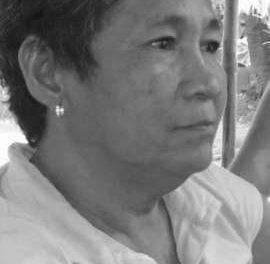Filipinas in Lebanon treated like 'modern-day slaves
Hezbollah not seen as ‘terrorist’ organisation
Press release, Manila, 18 August 2006
Hezbollah not seen as ‘terrorist’ organisation
Press release, Manila, 18 August 2006
Filipina overseas workers in Lebanon are being treated like “modern-day slaves,” this was the main finding of Filipinos who had just arrived from Lebanon as part of an international civil society and parliamentary delegation.
"The working conditions of Filipinos in Lebanon are terrible,” said Rep. Mujiv Hataman, Anak Mindanao party-list representative.
"They are promised $200-a-month salary when they are in Manila but they get only $150 when they arrive in Lebanon. They work from 5am to 12 midnight everyday without any day-off. Some of them are even made to work in factories, after working at their employers’ households,” Hataman said, summarizing their interviews with dozens of Filipinas in the Philippine evacuation center in Beirut.
"Their situation approaches that of indentured labor, even white slavery,” observed Dr Walden Bello, a professor at the University of the Philippines, who also took part in the mission.
The mission demands that the deployment of Filipinos to work as domestic workers abroad is rendered unnecessary through the creation of employment opportunities at home. Meanwhile, the mission denounced the Philippine Overseas Employment Administration for its failure to protect the welfare of Filipinos abroad.
In particular, they recommend the banning of and the filing of charges against Filipino and Lebanese employment agencies that are found to have abused workers. They also recommend studying the possibility of totally doing away with employment agencies and transferring their role of finding jobs, recruiting workers, and dealing with employers to the government.
"The employment agencies are like modern-day slave traders who are getting rich on the back of Filipinos. They automatically deduct the first three-months of salary from the workers. They promise $200 a month to workers who end up receiving only $150 a month. In case of emergencies like this war, they care less about the welfare of the workers than about minimizing costs,” said Herbert Docena, a representative of the Stop the War Coalition-Philippines. “The government, for its part, condones this arrangement.”
Despite the bad treatment Filipinas receive from their Lebanese agencies and employers, the mission stressed that the Lebanese people do not deserve to be bombed by Israel.
"Ultimately, the bombs that were falling on Lebanon and putting the Filipinos in danger came from Israel. Their decision to initiate the aggression is unjustifiable; their decision to put Filipinos, along with the Lebanese, under “collective punishment”, is a violation of international law,” says Docena, whose group Stop the War Coalition-Philippines, has been calling for the withdrawal of the Philippine ambassador from Israel and the cutting of diplomatic ties with the country until it ends its occupation of Palestine.
Contrary to most media reports, the Hezbollah is not seen as a “terrorist” organisation by the vast majority of the Lebanese people, the mission found. It is part of what the Lebanese call the “national resistance” that includes not just the Hezbollah but other Christian and secular groups.








